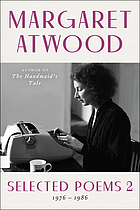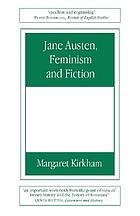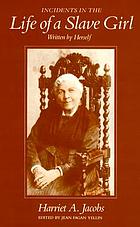Service Alert
Service Alert

 Selected Poems II
by
Margaret Atwood
Houghton Mifflin now proudly publishes Selected Poems II, a volume of selections from Atwood's poetry of the last ten years. Underlying oppression and injustice, we hear the music of compassion and fellowship.
Selected Poems II
by
Margaret Atwood
Houghton Mifflin now proudly publishes Selected Poems II, a volume of selections from Atwood's poetry of the last ten years. Underlying oppression and injustice, we hear the music of compassion and fellowship.
 A Vindication of the Rights of Woman
by
Mary Wollstonecraft; Miriam Brody Kramnick (Editor)
Writing in an age when the call for the rights of man had brought revolution to America and France, Mary Wollstonecraft produced her own declaration of female independence in 1792. Passionate and forthright, A Vindication of the Rights of Woman attacked the prevailing view of docile, decorative femininity and instead laid out the principles of emancipation: an equal education for girls and boys, an end to prejudice, and the call for women to become defined by their profession, not their partner. Mary Wollstonecrafts work was received with a mixture of admiration and outrageWalpole called her a hyena in petticoatsyet it established her as the mother of modern feminism.
A Vindication of the Rights of Woman
by
Mary Wollstonecraft; Miriam Brody Kramnick (Editor)
Writing in an age when the call for the rights of man had brought revolution to America and France, Mary Wollstonecraft produced her own declaration of female independence in 1792. Passionate and forthright, A Vindication of the Rights of Woman attacked the prevailing view of docile, decorative femininity and instead laid out the principles of emancipation: an equal education for girls and boys, an end to prejudice, and the call for women to become defined by their profession, not their partner. Mary Wollstonecrafts work was received with a mixture of admiration and outrageWalpole called her a hyena in petticoatsyet it established her as the mother of modern feminism.
 Jane Austen, Feminism and Fiction
by
Margaret Kirkham
A classic account of Jane Austen in the context of eighteenth century feminist ideas and contemporary thought.
Jane Austen, Feminism and Fiction
by
Margaret Kirkham
A classic account of Jane Austen in the context of eighteenth century feminist ideas and contemporary thought.
 The Heart of a Woman
by
Maya Angelou
This fourth autobiographical work by Maya Angelou tells of her entry into New York's circle of black artists and writers, her involvement in the civil rights movement, and changes in her personal life.
The Heart of a Woman
by
Maya Angelou
This fourth autobiographical work by Maya Angelou tells of her entry into New York's circle of black artists and writers, her involvement in the civil rights movement, and changes in her personal life.
 Incidents in the Life of a Slave Girl
by
Harriet A. Jacobs; Jean Fagan Yellin (Editor)
This enlarged edition of the most significant and celebrated slave narrative now completes the Jacobs family saga, surely one of the most memorable in all of American history. John Jacobs's short slave narrative, A True Tale of Slavery, published in London in 1861, adds a brother's perspective to Harriet Jacobs's own autobiography. It is an exciting addition to this now classic work, as John Jacobs presents additional historical information about family life so well described already by his sister. Importantly, it presents the people, places, and events Harriet Jacobs wrote about from the different perspective of a male narrator. Once more, Jean Yellin, who discovered this long-lost document, supplies annotation and authentication. She has also brought her Introduction up to date.
Incidents in the Life of a Slave Girl
by
Harriet A. Jacobs; Jean Fagan Yellin (Editor)
This enlarged edition of the most significant and celebrated slave narrative now completes the Jacobs family saga, surely one of the most memorable in all of American history. John Jacobs's short slave narrative, A True Tale of Slavery, published in London in 1861, adds a brother's perspective to Harriet Jacobs's own autobiography. It is an exciting addition to this now classic work, as John Jacobs presents additional historical information about family life so well described already by his sister. Importantly, it presents the people, places, and events Harriet Jacobs wrote about from the different perspective of a male narrator. Once more, Jean Yellin, who discovered this long-lost document, supplies annotation and authentication. She has also brought her Introduction up to date.
